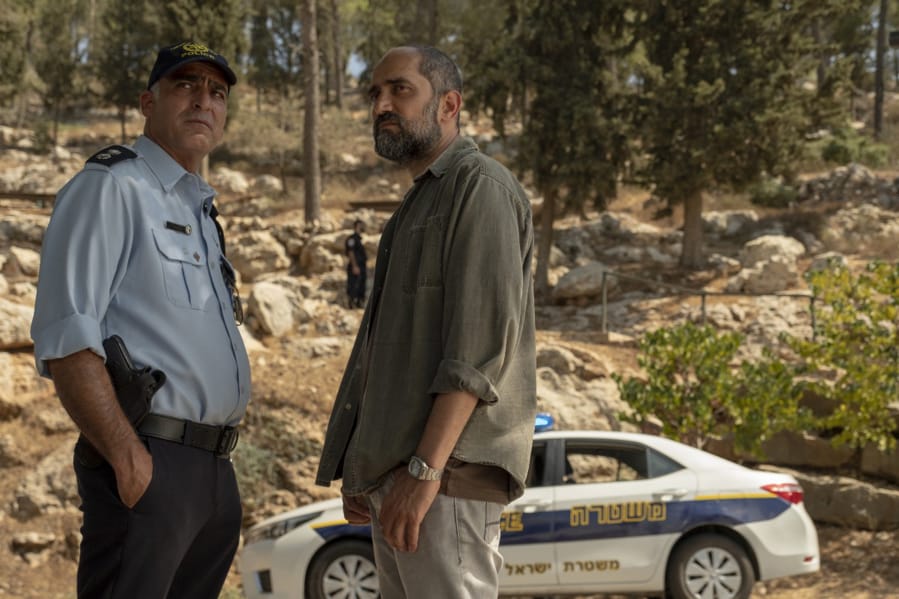LOS ANGELES — Even if it is only five years, time can have a way of manipulating memories about the most tragic of events. That’s what the team behind the 10-part HBO series “Our Boys” discovered.
The series is based on true events that unfolded in Israel in 2014 that sparked a war in Gaza. Television writer, producer and director Hagai Levi did not realize just how much of his memories were different than what actually happened.
“Like many Israelis, we thought we remembered quite well what happened, but during the research, and during the work, we understood that this event is much more complicated than we thought it is,” says Levi, who co-created the series and was born in Israel. “We tried to investigate, psychologically, sociologically, much more about this event to get to the bottom of it, and that was basically our work here to get away from just a procedural crime story (and go) into a very deep exploration of a hate crime, which is very, very relevant to everywhere in the world.”
He is referring to how three Jewish teenagers were kidnapped and murdered by Hamas militants. The violence first shocked those in Israel, which turned to anger. Two days later, the burned body of a Palestinian teenager from East Jerusalem was found in a forest on the western outskirts of the city.
The series follows the investigation by an agent from the internal terror division of the Shin Bet (Israel Security Agency) while the parents of the slain teenager look for justice and consolation.
Levi’s primary concern when he was writing the script wasn’t trying to make sure both sides got equal attention.
“I don’t think we tried too hard to be balanced,” Levi says. “We were quite cautious in a way to represent things as they are. It wasn’t about being balanced, it was being true to what happened. So it wasn’t that much a process of thinking but about exploring and unfolding layer after layer.”
Part of the process was filming the series in Israel. The location shooting gave the production an authenticity the creative team wanted, but it proved to be a major task. It took almost 36 months to film the 10 episodes, slowed by filming restrictions and the determination to form the characters so an audience would form an allegiance to the participants without getting outside the lines of what really transpired.
This was all discussed and debated by the creative team, which included both Israelis and Palestinians. They decided to focus on the murder of Mohammed Abu Khdeir (Ram Masarweh) as told from three perspectives: Khdeir’s family, the three killers and the Shabak agent responsible for the investigation.
“After we agreed that that’s our story, we began a long process of research, speaking to everyone on all three sides of this story,” says executive producer Joseph Cedar. “We had the privilege to really get into the depth of every detail. Once we had that material, we began writing drafts. Hagai laid out a certain structure to the story.
“Then, (co-creator) Tawfik (Abu-Wael) and I went out and wrote the first three episodes. I was writing the Israeli/Jewish part of the story. Tawfik was writing the Palestinian side of the story. Hagai was reading our work, discussing it with us, and gradually, over a writing process of about a year and a half, we came up with scripts that are a result of serious discussion, argument, and at the end, distilled into something that hopefully really gets to the core of the story.”
The core reflects hatred with a deep history. Retelling a story that ignited a war could be like throwing gasoline on a fire that is still smoldering. But Levi has more faith in the response. His view is preventing such incidents begins with understanding.
“What we try to do is to lay down many layers of elements that could cause such a hate crime. I think when you are aware to all these layers, you can do something about it,” says Levi. “So what we found out, actually, is that the political element, the ideological element is very, very thin.
“So, yes, of course, you need this element to make the flame. But if you prevent things before, if you take care of elements in society — of groups in society that are not in the mainstream that are not in the middle of the discourse — if you pay attention to them, then you might not get to the point that all these elements come together to this perfect storm that creates those kind of crimes.”



